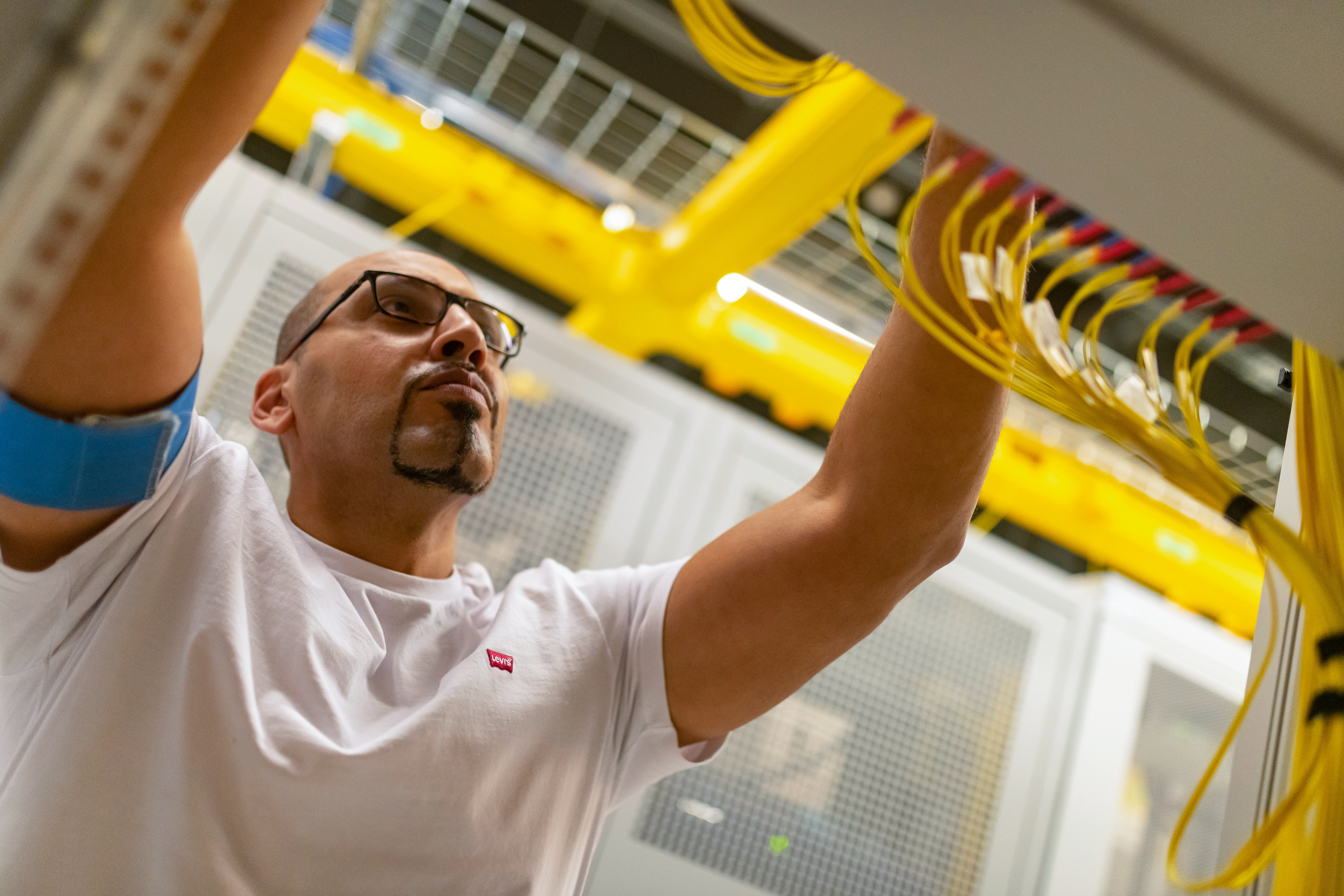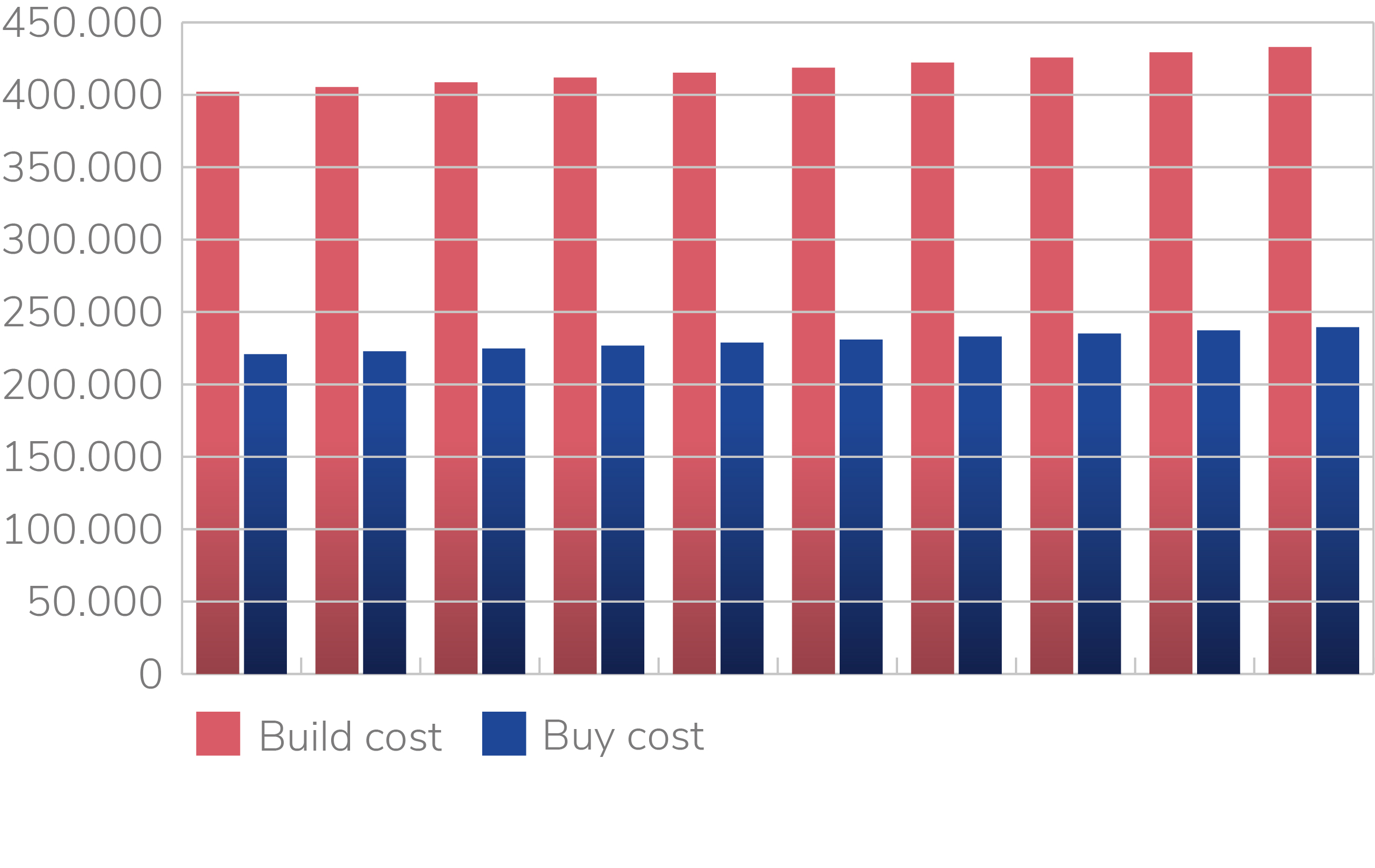Do you build your own server room, or do you choose to outsource your data? To build a business case on ‘building or buying’, you should consider numerous factors. Ultimately, the choice greatly depends on the needs and drivers of your business. Still, there are some general pros and cons to each IT infrastructure housing solution.
Build: a business case for an in-house data center
Pros
Some companies store data that is privacy sensitive and has to stay within company walls for legal or policy reasons. In this case, an in-house server room is the only option. If you do have a choice, the strongest argument by far for an in-house infrastructure is control. Having the hardware and server space on your own premises means you get to decide if, when and how you want to expand or modify them. Furthermore, your staff always has direct access to the infrastructure. Though, this could also be a security risk and thus, a severe downfall.
Cons
The flip side of the coin is the investments you must make to build and maintain the data center. A commercial third party can exploit economies of scale and can usually offer better pricing and better connectivity. The scale at which you have to build a data center to ensure its financial viability has grown extensively over the years. Only if your company needs thousands of square meters for data storage, it can be advantageous to build the infrastructure yourself. In that case, you are also committed to a location. So, when your company and its need for data storage grows, it will be costly to change or expand your current location.
Furthermore, on-premise you will also need a full team to manage the infrastructure. These structural costs, added to the expenses of building and maintaining an in-house data center, can run very high. You also have to make a business continuity plan so you can anticipate future developments and costs. Having an in-house data center means you continually have to adapt to provide enough space, power, and cooling and stay up-to-date with social developments and rules. Take the EU Green Deal, for instance. This initiative aims at a climate-neutral economy by 2030, and it will take large investments to get there.

Buy: a business case for an external data center
Pros
For many companies, the main reason for leasing server space from a third-party data center, also called colocation, is peace of mind. Commercial data centers usually offer cooling, fully redundant power and internet connections and mirrored data centers for reliable disaster recovery, so you can be sure your data is safe under all circumstances.
In addition, the costs of outsourcing are considerably lower than building and maintaining on-premise infrastructure. Outsourcing your data can be up to 45 per cent cheaper than in-house data storage. LCL has done the maths and calculated that for a space of 50m2, the total cost over ten years for in-house management amounts to approximately 4.2 million euros instead of 2.4 million euros in the case of data outsourcing. That is an extra 1.8 million you could invest in your company. This scale of economies has more advantages. Because data center providers have ample resources to invest in security and R&D, external data storage is usually much safer, more efficient, up-to-date, and fully certified.
Infrastructure outsourcing also allows your business to focus on its core activities. Scalability is important as well: when your company grows and needs to move to a bigger location, you will lose the investments you made in your own data center. Colocation offers the flexibility required for your IT infrastructure to grow together with your company, in size and capacity. LCL, for instance, provides cloud solutions made to measure. A carrier independent data center also provides a broad range of carrier offerings, giving you flexibility and a more competitive market price. But foremost, an external provider can guarantee you top of the bill connectivity. LCL houses over forty telecom operators and can ensure you will have zero connectivity issues.
Cons
The cons of colocation will obviously overlap the pros of an internal infrastructure. The foremost advantage was control. But the key question is if this sense of control outweighs the benefits such as top of the bill connectivity and high-security commercial data centers offer? It usually does not. With an external solution, you never have to worry about connectivity problems. That certainty provides a piece of mind that is priceless.
Another advantage was the direct access staff has to the infrastructure at an on-premise data center. With an external infrastructure, the hardware supposedly is not easily accessible for your team, making troubleshooting or adjusting it more difficult. However, at LCL, we offer 24/7 accessibility and proximity and a ‘hands and eyes service’. Through this service, you can brief our staff remotely. They will be your hands and eyes and can make adjustments on your behalf. This way, you can enjoy all the advantages of an external data center without the cons.
A little help deciding
Still not sure whether to build or buy? Do the Quick Scan! By answering just fours short questions, you will have a better idea of which option suits your company the best.
